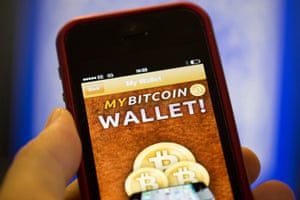Why do you think hackers love bitcoin?
Have you noticed how many hackers use bitcoin for ransom?
In March 2009, representatives of crime agencies including MI6 and the FBI, as well as Her Majesty’s Revenue and Customs, gathered for a closed session at a conference in a central-London hotel. The topic: the potential use of virtual currencies by organised criminals and terrorists.
“At the time, everyone was getting very exercised about Second Life,” recalls Dr Simon Moores, a former technology ambassador for the UK government, who convened the session as chair of the international e-Crime Congress. The online virtual world, launched in 2003, allowed users to buy virtual goods in virtual Linden Dollars, named after Linden Lab, the company behind the game.
“Bad guys were using this currency to buy virtual Picassos for $500,000 as a way of laundering the money,” Moores adds. Later that day, he wrote in his notes: “I’m still trying to digest the fantastic scale of the criminal opportunities and the money that can be made and laundered outside the control of law-enforcement agencies and Governments.”
Almost a decade later – an age in digital evolution – those same agencies are absorbing the impact of a rather different and wider ranging breach of cybersecurity, and the potentially vast implications for the current criminal currency of choice: bitcoin, which quietly landed online just weeks before the London conference.
Victims of the WannaCry ransomware attack, which started on Friday, received a simple message on their computer screens: if you want to see your computer files again, pay us $300 (£230) inside the next 72 hours and we’ll unlock them for you, no questions asked. The ransomware had spread automatically between computers with out-of-date security patches, affecting hundreds of thousands of users at dozens of organisations including the NHS, as well as railways in Australia and a car plant in France.
Then came Bitcoin, a virtual or cryptocurrency invented by Satoshi Nakamoto, the alias for an anonymous programmer or collective, and launched in 2009. It offers two major advantages for cybercriminals: by operating as a decentralised currency, in which people pay each other without a middleman (like a bank or credit card company), it provides a lot of anonymity. Bitcoins, which are now worth more than £1,300 each (there are smaller denominations, naturally) can be held in virtual wallets identified only by a number. According to a recent Cambridge University study published last month, as many as six million people around the world have such a wallet, spending bitcoins on goods such as theatre tickets and beer from a growing number of retailers now accepting the currency, as well as illicit goods including drugs and weapons on the virtual black market.

Using the currency is also increasingly easy to do, and that also applies to cybercriminals seeking to launch ransomware attacks. “If you have the skills to get an iTunes account you can probably download a ransomware toolkit, an automated bit of software, and start distributing it,” says David Prince, a cybersecurity specialist and a director at Baringa Partners, a London-based tech consultancy. “You can then go on the darknet and ‘wash’ your bitcoins and convert them back into cash.”

